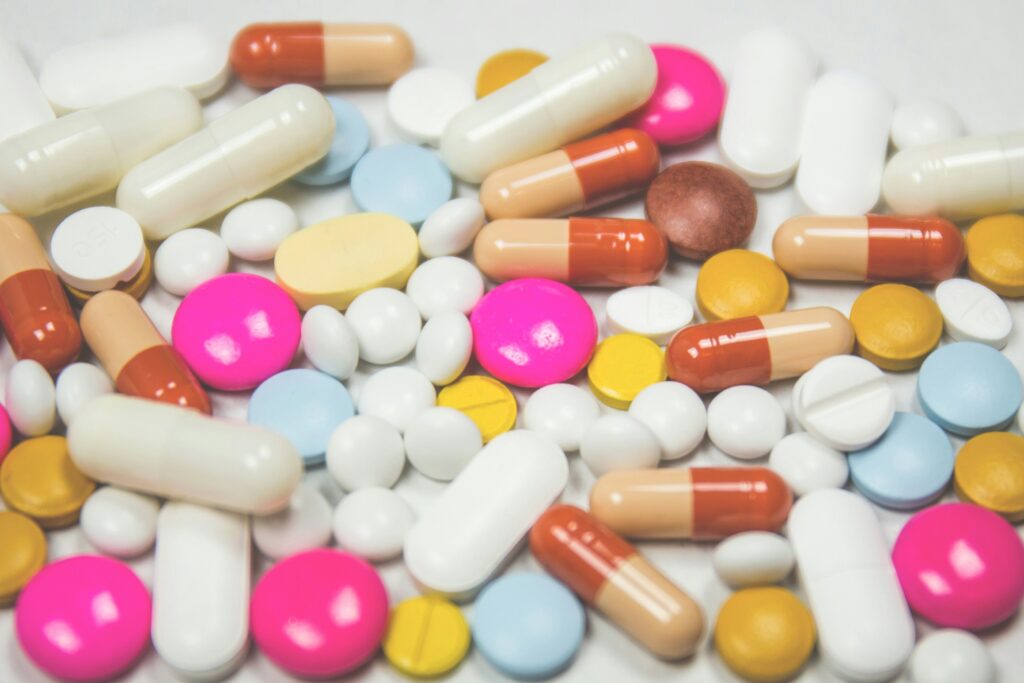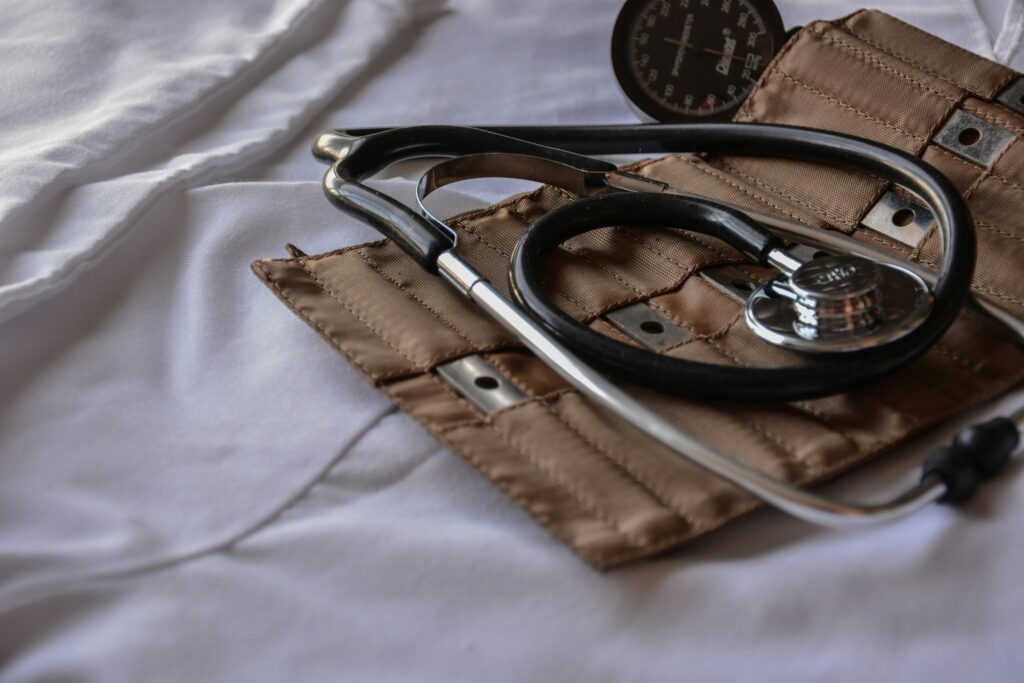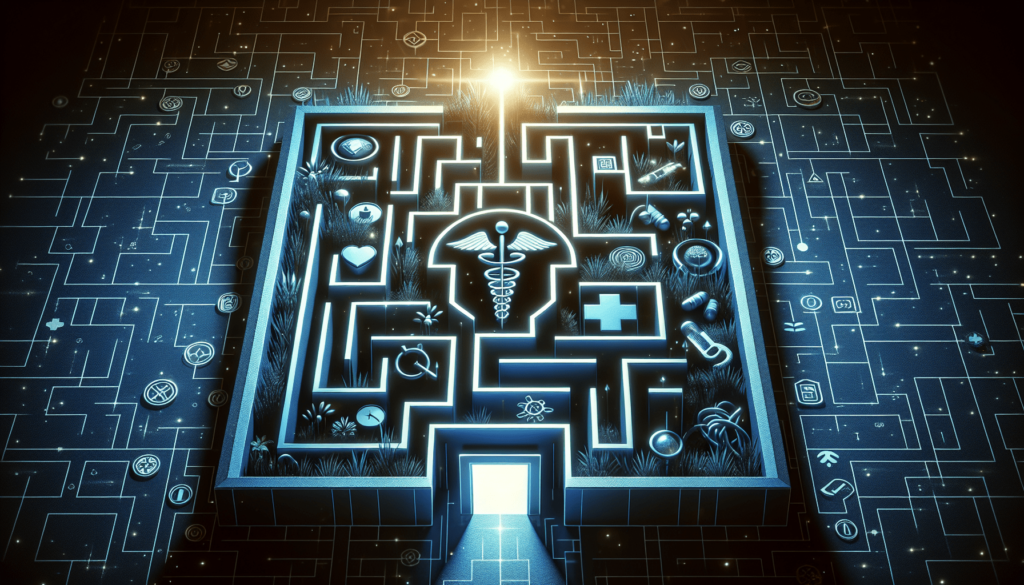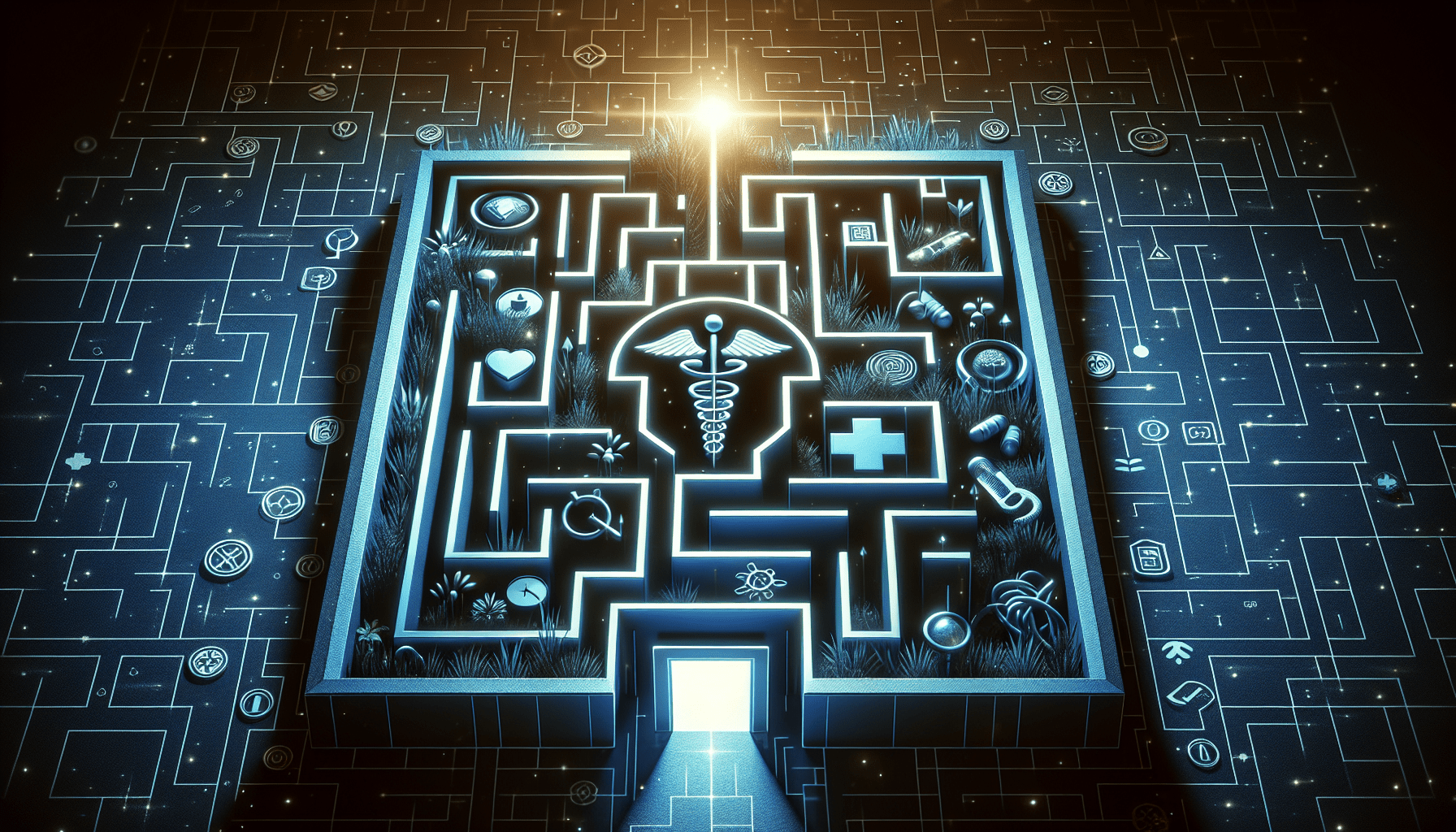So, you've tried using an ED pump, but unfortunately, it hasn't been effective for you. Don't worry, you're not alone in facing this challenge. When you're in a situation where an ED pump doesn't work, it can be frustrating and disheartening. However, there are still options available to explore. In this article, we will discuss some alternative solutions and strategies that you can consider to address this issue. Let's find the right path forward together.

Understanding Erectile Dysfunction (ED) and ED Pumps
Definition of Erectile Dysfunction (ED)
Erectile Dysfunction (ED), also known as impotence, is a condition that affects many men around the world. It is characterized by the inability to achieve or maintain an erection sufficient for sexual intercourse. While it is a common condition, it can have a significant impact on a person's self-esteem, confidence, and overall quality of life.
Causes of ED
There are various factors that can contribute to the development of ED. These may include physical causes such as diabetes, heart disease, high blood pressure, obesity, or certain medications. Psychological factors such as stress, anxiety, depression, or relationship issues can also contribute to the development of ED.
What is an ED Pump?
An ED pump, also known as a vacuum erection device (VED), is a non-invasive treatment option for ED. It consists of a cylindrical tube that is placed over the penis, creating a vacuum to draw blood into the penis and induce an erection. Once the erection is achieved, a tension ring is placed at the base of the penis to maintain the erection for sexual activity.
How Does an ED Pump Work?
The ED pump works by creating a vacuum that increases blood flow to the penis, resulting in an erection. When the penis is placed inside the cylindrical tube, air is pumped out, creating a negative pressure that draws blood into the penis. This process mimics the natural physiological response of an erection.
Reasons why an ED Pump Might Not Work
Incorrect Usage of the Pump
One of the most common reasons why an ED pump might not work is incorrect usage. It is important to carefully follow the instructions provided by the manufacturer to ensure proper usage. This includes properly applying the tension ring, maintaining the vacuum seal, and not exceeding the recommended usage time.
Physical Limitations or Health Conditions
Certain physical limitations or health conditions may affect the effectiveness of an ED pump. For example, individuals with severe vascular disease or nerve damage may have difficulty achieving an erection with the use of a pump. Additionally, some individuals may have anatomical abnormalities or scarring that can interfere with the proper functioning of an ED pump.
Mental or Emotional Factors
It is important to recognize that ED can be influenced by mental or emotional factors. Stress, anxiety, depression, and relationship issues can all have a significant impact on sexual function. In such cases, an ED pump may not be sufficient to overcome these underlying factors. It is important to address any psychological concerns with a healthcare professional or therapist.
Verifying Correct Usage of an ED Pump
Check the Instructions Manual
If you are experiencing difficulties with an ED pump, the first step is to carefully review the instructions manual provided by the manufacturer. Ensure that you are using the pump correctly, including proper assembly, placement, and usage. It is important to follow the instructions precisely as they have been designed to maximize the effectiveness of the device.
Reach Out To Your Doctor or a Professional
If you are unsure about the correct usage of an ED pump or if you continue to experience difficulties despite following the instructions, it is advisable to reach out to your doctor or a healthcare professional. They can provide you with additional guidance and ensure that you are using the device correctly. They may also be able to recommend alternative treatment options if an ED pump is not suitable for your specific situation.
Participate in Practical Demonstrations or Videos
In some cases, it may be helpful to participate in practical demonstrations or watch educational videos that provide step-by-step instructions on how to use an ED pump correctly. These demonstrations can help you visualize the proper techniques and address any questions or concerns you may have. Many manufacturers and healthcare professionals offer these resources as part of their support and education programs.
What to Do If an ED Pump Still Doesn't Work
Consulting Your Doctor
If an ED pump does not work for you, it is important to consult your doctor. They can evaluate your specific situation, assess any underlying physical or psychological factors contributing to your ED, and recommend alternative treatment options. Your doctor may suggest other non-invasive treatments or refer you to a specialist if necessary.
Getting a Second Opinion
If you are still not satisfied with the effectiveness of an ED pump or the recommendations provided by your doctor, seeking a second opinion can be beneficial. Another healthcare professional may have a different perspective or alternative treatment options to consider. It is important to advocate for your own health and explore all available options.
Alternative Treatment Options
If an ED pump is not effective for you, there are several alternative treatment options to consider. These may include oral medications, injections or suppositories, penile implants, vascular surgery, hormone therapy, or natural and holistic treatments. Discuss these options with your doctor to determine the most suitable approach for your individual needs.

Alternative Medical Treatments for ED
Oral Medication
Oral medications such as Viagra, Cialis, and Levitra are commonly prescribed for the treatment of ED. These medications work by increasing blood flow to the penis, helping to facilitate an erection. They are typically taken before sexual activity and can be effective for many individuals.
Injections or Suppositories
For individuals who do not respond to oral medications, injections or suppositories may be recommended. These medications are directly administered into the penis, resulting in a rapid onset of an erection. They can be effective for individuals with severe ED or those who cannot tolerate oral medications.
Penile Implants
Penile implants are a surgical treatment option for ED. They involve the insertion of inflatable or malleable devices into the penis, allowing for on-demand erections. This option is typically considered when other treatments have failed or are not suitable for an individual's specific needs.
Vascular Surgery
In certain cases, vascular surgery may be recommended to address blood flow issues contributing to ED. This involves reconstructing or bypassing the arteries in the penis to improve blood flow. Vascular surgery is generally considered a last-resort option when other treatments have been unsuccessful.
Hormone Therapy
Hormone therapy may be considered for individuals with hormonal imbalances that contribute to ED. Testosterone replacement therapy is a common approach, as low testosterone levels can impact sexual function. Hormone therapy should only be pursued under the guidance of a healthcare professional.
Natural and Holistic Treatment Options
Lifestyle Changes
Making certain lifestyle changes can have a positive impact on ED. Quitting smoking, reducing alcohol consumption, and maintaining a healthy weight are all beneficial for overall sexual health. Regular exercise, stress reduction techniques, and quality sleep can also improve sexual function.
Diet and Nutrition
A healthy diet rich in fruits, vegetables, whole grains, and lean proteins can support overall sexual health. Certain foods such as watermelon, spinach, and dark chocolate have been linked to improved blood flow and sexual function. Discussing any specific dietary concerns or incorporating supplements with your doctor is advised.
Physical Exercise
Regular physical exercise is not only important for overall health but can also improve sexual function. Engaging in activities that increase cardiovascular fitness and strengthen pelvic muscles, such as swimming, cycling, or pelvic floor exercises, can have positive effects on ED.
Psychotherapy and Counseling
Seeking the support of a therapist or counselor can be beneficial for individuals experiencing psychological factors contributing to ED. Psychotherapy can help address underlying issues such as anxiety, stress, or relationship problems, thereby improving sexual function and overall well-being.
Herbal Supplements
Some individuals may consider herbal supplements as a natural treatment option for ED. Supplements such as ginseng, horny goat weed, and L-arginine have been studied for their potential benefits in enhancing sexual function. However, it is important to consult with a healthcare professional before starting any herbal supplements to ensure their safety and effectiveness.

The Role of Mental Health in ED
How Stress and Anxiety Can Exacerbate ED
Stress and anxiety can play a significant role in the development and exacerbation of ED. When a person is stressed or anxious, the body may release hormones that can interfere with the ability to achieve or maintain an erection. Additionally, the psychological impact of ED itself can lead to feelings of stress and anxiety, creating a cycle that can worsen the condition.
The Benefits of Psychotherapy
Psychotherapy, specifically cognitive-behavioral therapy (CBT), can be helpful in managing stress, anxiety, and other psychological factors that may contribute to ED. CBT can help individuals identify and challenge negative thought patterns, develop coping strategies for stress, and improve overall mental well-being. It can be an effective tool in conjunction with other treatments for ED.
Relaxation Techniques
In addition to therapy, incorporating relaxation techniques into your daily routine can help reduce stress and anxiety associated with ED. Techniques such as deep breathing exercises, meditation, yoga, or mindfulness can promote overall relaxation and improve sexual function.
Partners' Role in the Process
Support and Encouragement
Partners play a crucial role in supporting individuals with ED. Providing emotional support, understanding, and reassurance can help alleviate feelings of shame or inadequacy. Encouraging open communication and seeking professional help together can also strengthen the relationship and facilitate the treatment process.
Open Communication
Open communication between partners is essential when dealing with ED. Discussing feelings, concerns, and expectations openly can help reduce misunderstandings and establish realistic goals. Communication can also lead to exploring new sexual activities or intimacy-building exercises that can strengthen the relationship.
Joint Counseling Sessions
Attending joint counseling sessions with a therapist or healthcare professional can be beneficial for couples dealing with ED. These sessions provide a safe space for partners to share their experiences, address any relationship issues, and develop effective coping strategies. Joint counseling can enhance mutual understanding and support throughout the treatment process.

Preventing Erectile Dysfunction
Regular Health Check-Ups
Regular health check-ups are essential for maintaining overall well-being and preventing potential health concerns, including ED. Routine visits to a healthcare professional can help identify and address any underlying medical conditions or risk factors that may contribute to the development of ED.
Maintaining a Healthy Lifestyle
Leading a healthy lifestyle is crucial in preventing ED. This includes maintaining a balanced diet, engaging in regular physical exercise, avoiding excessive alcohol consumption, managing stress levels, and not smoking. Adopting healthy habits can have a positive impact on overall sexual health.
Avoiding Risk Factors
Certain risk factors, such as obesity, high blood pressure, and diabetes, can increase the likelihood of developing ED. Taking steps to manage these conditions, such as maintaining a healthy weight, controlling blood pressure, and effectively managing diabetes, can help prevent or minimize the risk of experiencing ED.
Importance of Mental Health
Prioritizing mental health is essential in preventing ED. Stress, anxiety, and depression can all contribute to the development of ED. Engaging in stress-reducing activities, practicing self-care, and seeking support when needed can help maintain good mental health and reduce the risk of developing ED.
Remaining Optimistic about the Future of ED Treatment
Current Advancements in ED Treatment
Advancements in ED treatment continue to evolve, offering hope for individuals experiencing the condition. New medications, minimally invasive procedures, and innovative therapies are constantly being developed and researched. Staying informed about these advancements and discussing them with your healthcare professional can help you explore potential options for the future.
Prognosis for Those Living with ED
For individuals living with ED, it is important to remain optimistic about the prognosis. With the right treatment approach, many individuals can successfully manage or overcome their ED symptoms. Through a combination of medical treatments, lifestyle modifications, supportive relationships, and emotional well-being, individuals can maintain a satisfying and fulfilling sex life.
Ongoing Research in the Field of ED
Research in the field of ED is ongoing, with scientists and healthcare professionals continuously working towards a better understanding of the condition and more effective treatment options. From exploring the impact of genetics to investigating new therapies and interventions, ongoing research provides hope for future advancements in the diagnosis and management of ED.


